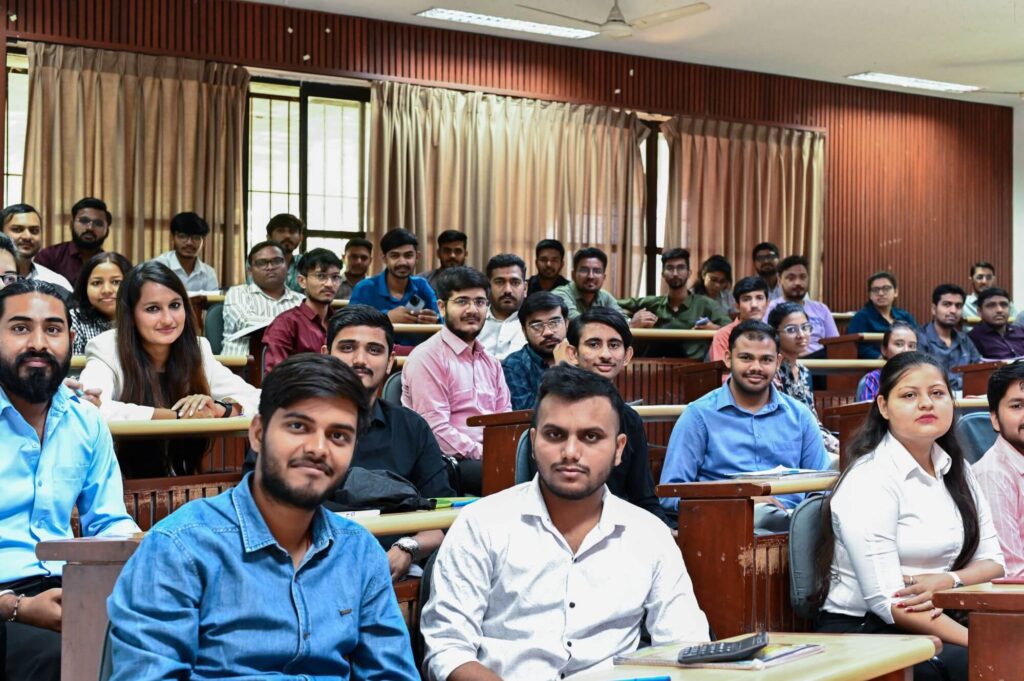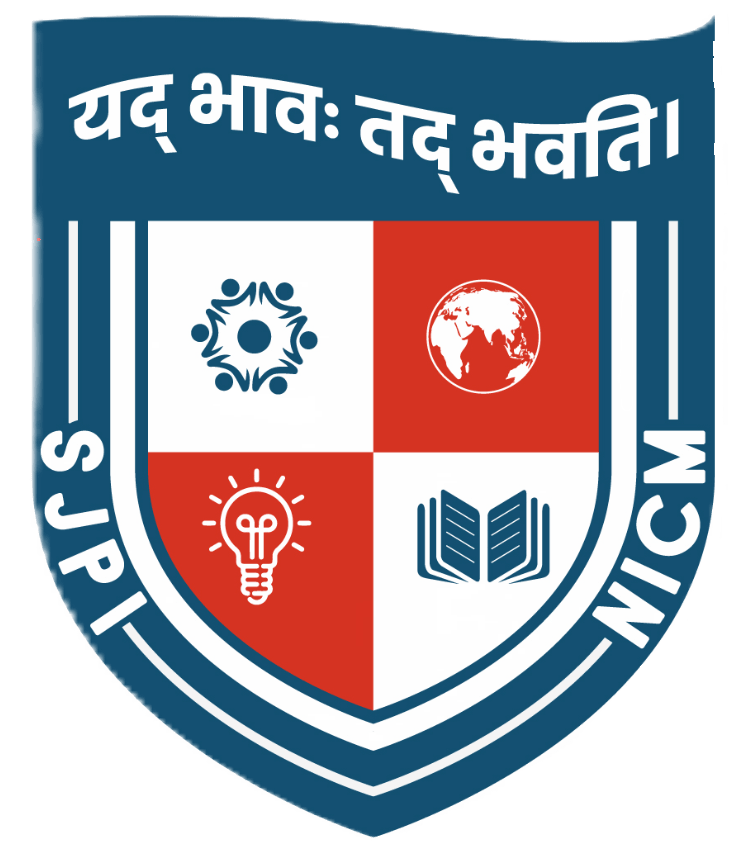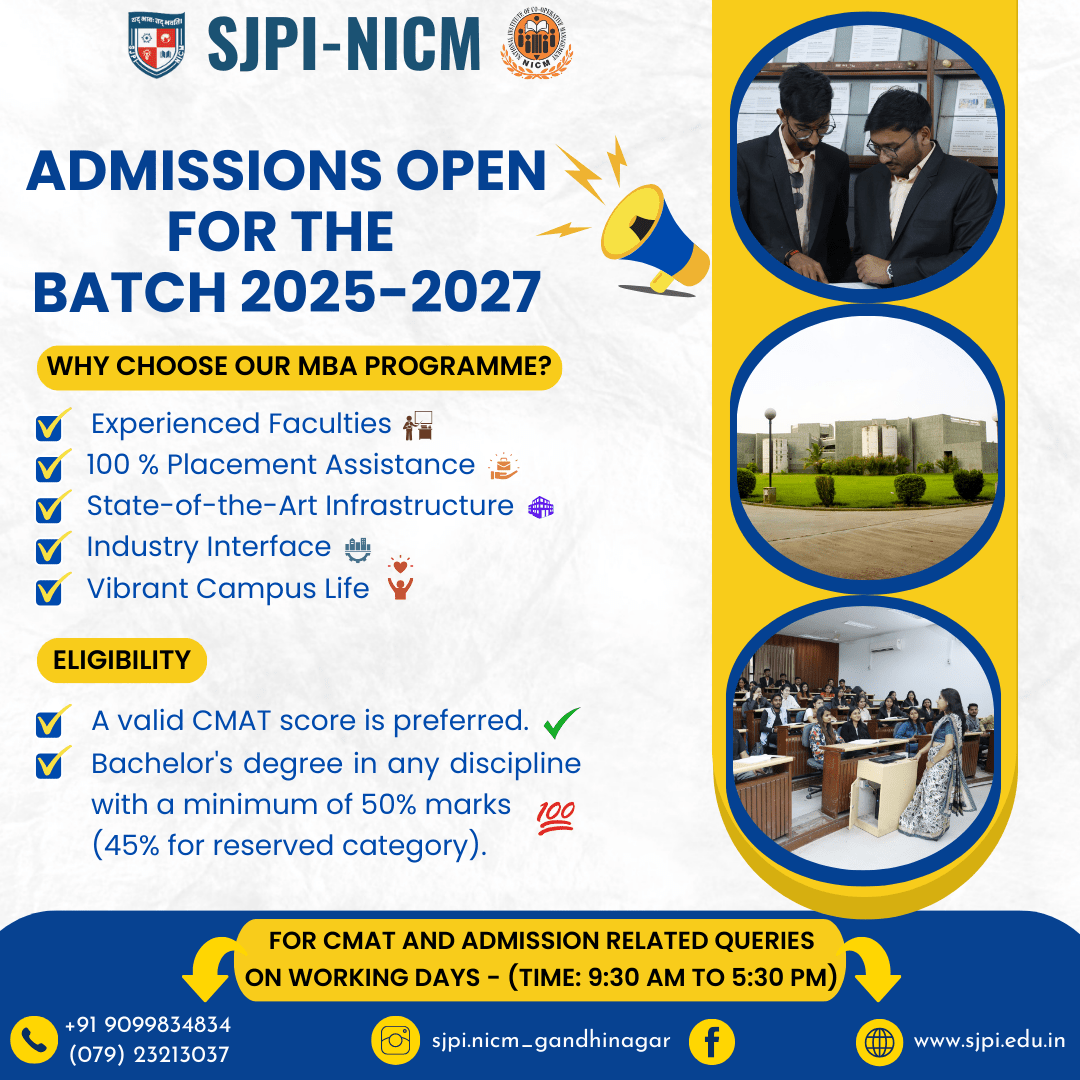
MBA Programmes
Master of Business Administration
SJPI is one of the pioneer MBA institutes in Gujarat. The MBA programme is governed by AICTE and is affiliated with Gujarat Technological University (GTU). This two-year full-time programme consists of four semesters, combining classroom teaching with organizational internships and projects. The first year of the MBA programme comprises two semesters, Semester I and Semester II. After completing the Semester II university examination, students must undertake a 4 to 6-weeks summer internship in an organization. In the second year, students select their specialization and choose sectoral and functional electives. Once a specialization is chosen in Semester 3, it cannot be changed in subsequent semesters.


The programme's structure is designed to provide students with the best industry exposure and a nurturing classroom environment, helping them become tomorrow's leaders in their chosen specialization.
Each of the first two semesters (Semester I and II) consists of seven full 4-credit subjects and one non-credit subject. Semester III consists of eight full 4-credit subjects, including two projects and one non-credit subject. Starting from this semester, students have the option to select their subject specializations, functional, and sectoral electives. Semester IV consists of five full 4-credit subjects, including one project. There will be both external and internal evaluations for all full-credit subjects. For non-credit subjects, there will be only external evaluation. Students must achieve minimum passing marks in the non-credit subjects, although these marks will not be counted towards the final result, grade, or percentage calculation.
As of now, the institute offers Finance, Marketing, and Human Resources as specializations that are to be opted for in the second year of the programme.
Finance Specialization
The Finance specialization is designed to provide students with a deep understanding of the financial concepts, tools, and techniques essential for decision-making in corporate finance, investment management, and financial institutions. It equips students with the necessary knowledge, skills, and analytical tools to pursue careers in various finance-related roles, including corporate finance, investment management, financial analysis, risk management, and financial consulting
Here are some key aspects typically covered in a finance specialization:
Corporate Finance
Financial Analysis and Reporting
Investments
Financial Markets and Institutions
Financial Derivatives
International Finance
Behavioural Finance
Financial Regulation and Compliance
Financial Strategy and Corporate Governance

Marketing Specialization

The Marketing specialization focuses on developing students' skills and knowledge in the field of marketing management, equipping them to excel in various marketing roles across industries. These include brand management, product management, advertising, market research, digital marketing, and more. Some key aspects typically covered in a marketing specialization are:
Consumer Behaviour
Market Research
Marketing Strategy
Product Management
Brand Management
Advertising and Promotion
Digital Marketing
Sales and Distribution Management
Human Resource Specialization
The Human Resource (HR) specialization is tailored to provide students with a comprehensive understanding of both the strategic and operational aspects of managing human capital within organizations. It equips students with the knowledge, skills and competencies needed to excel in HR roles across industries. These roles include HR management, talent management, organizational development and labor relations. The program prepares them to address the evolving challenges and opportunities in managing human capital effectively in today's dynamic business environment.
Here are some key aspects typically covered in a human resource specialization:
Talent Acquisition and Recruitment
Employee Development and Training
Performance Management
Compensation and Benefits
Employee Relations and Labor Laws
Organizational Behaviour and Culture
Diversity and Inclusion
Strategic HR Management
HR Analytics and Technology
Change Management and Organizational Development



